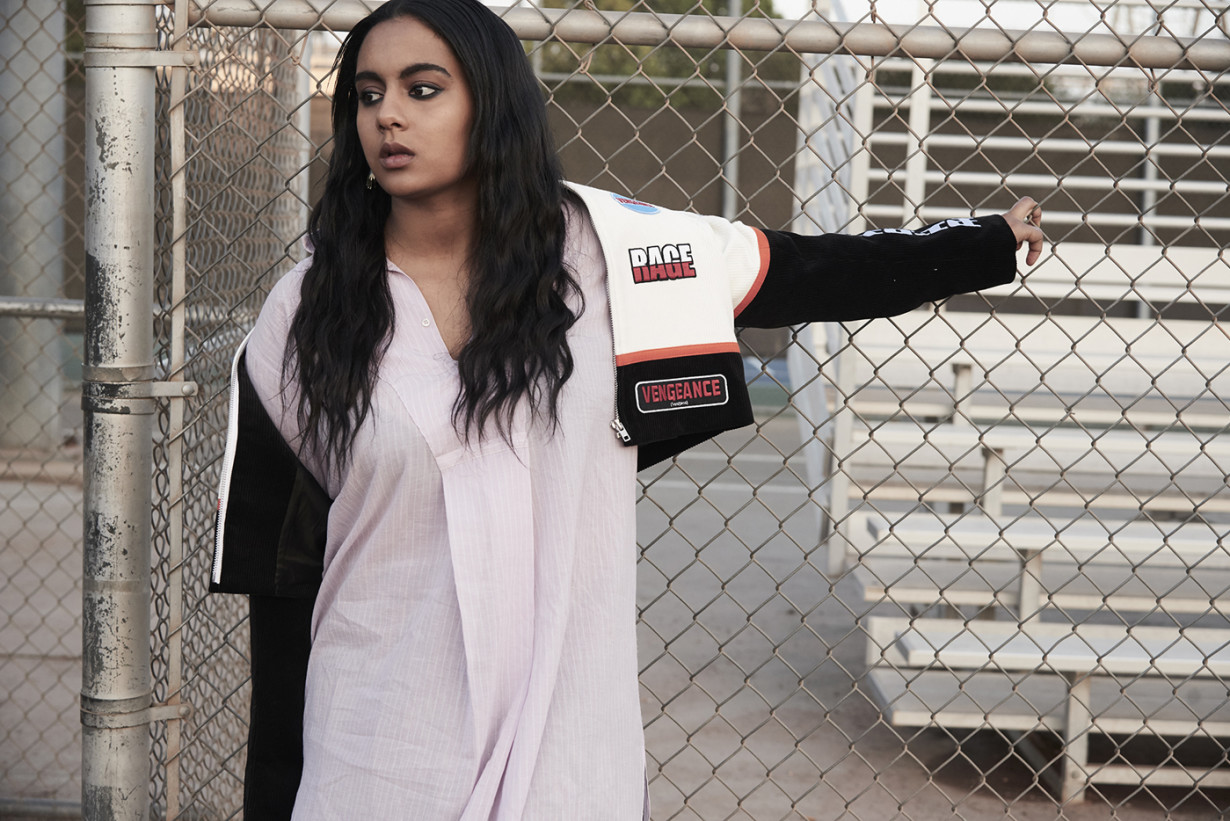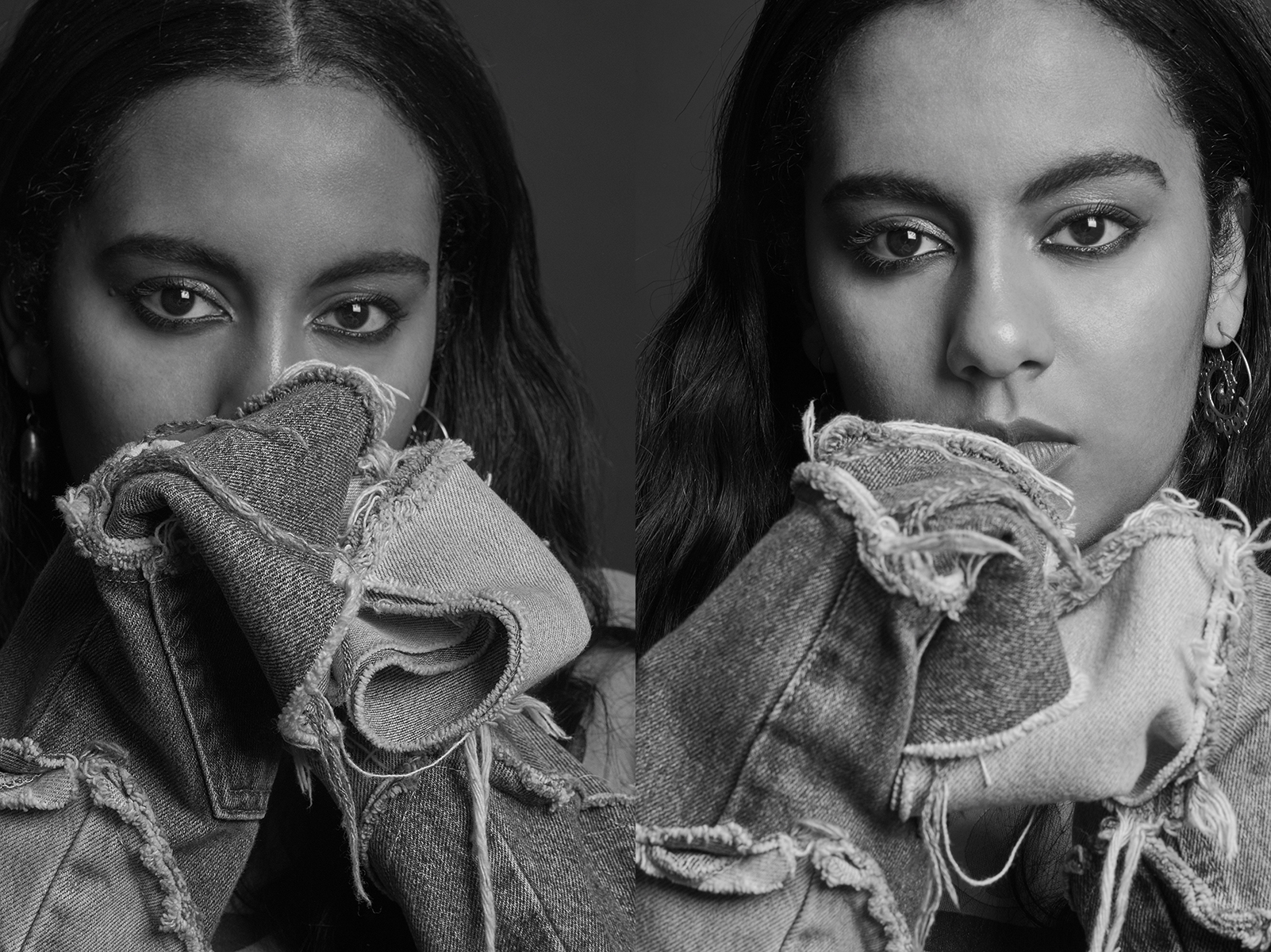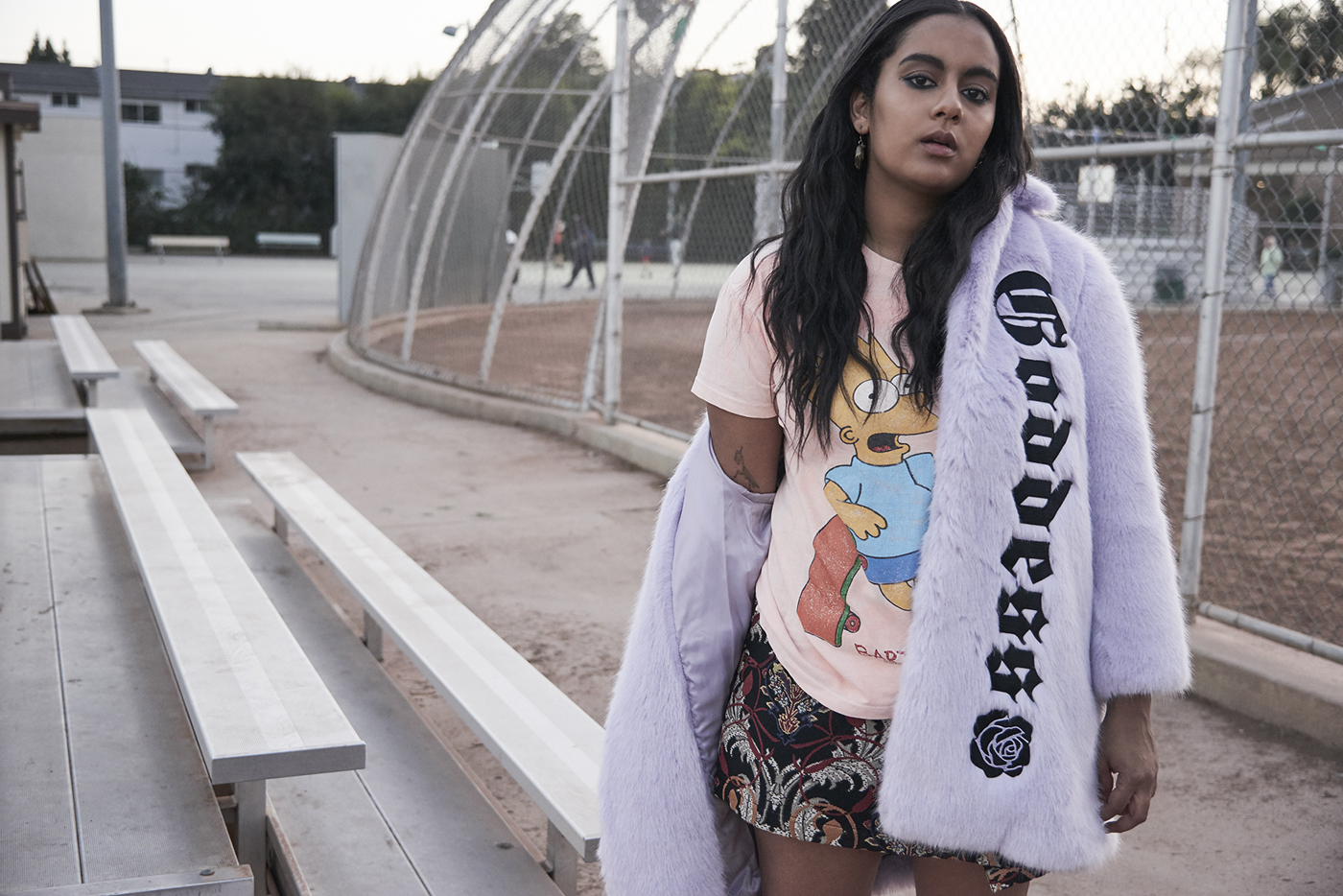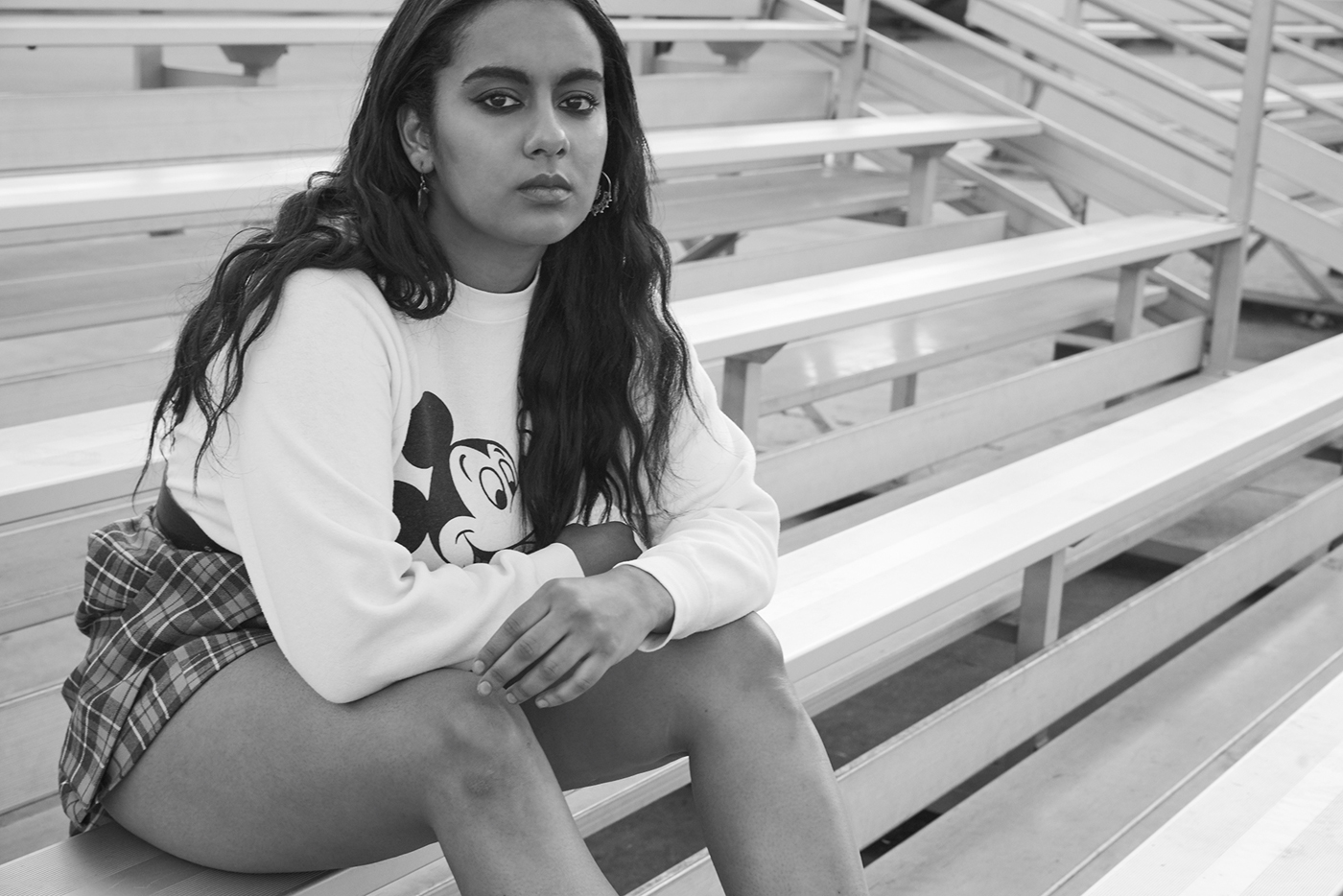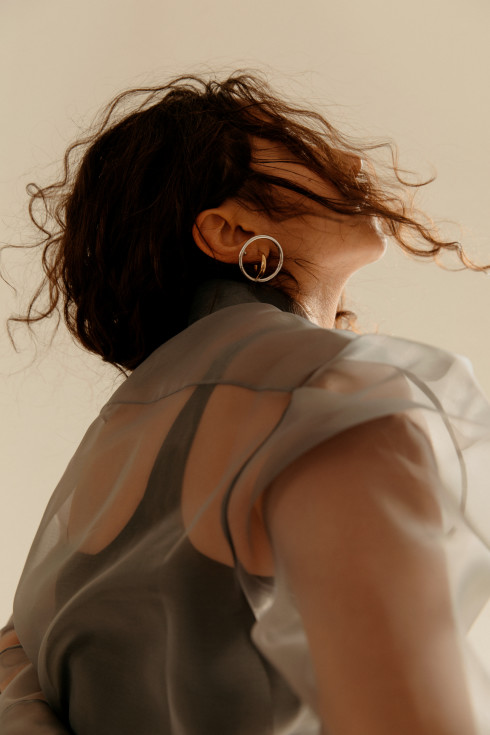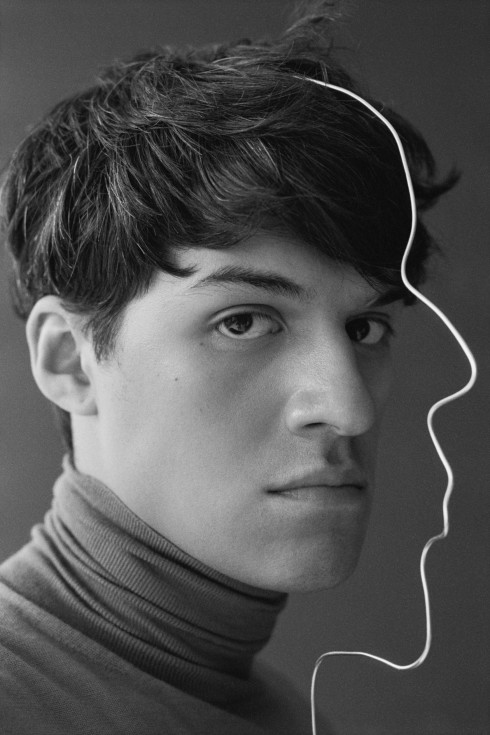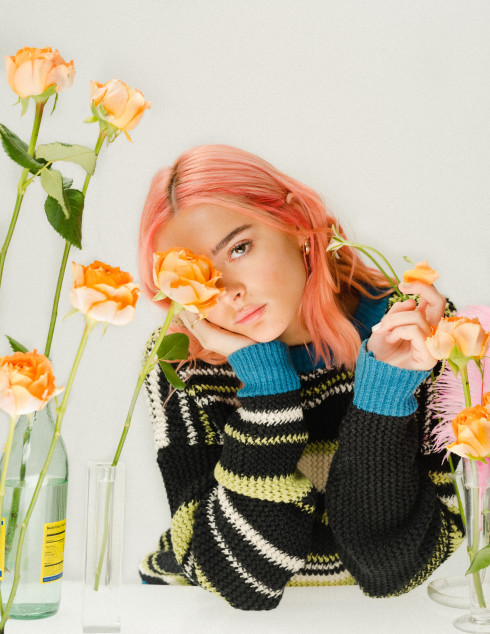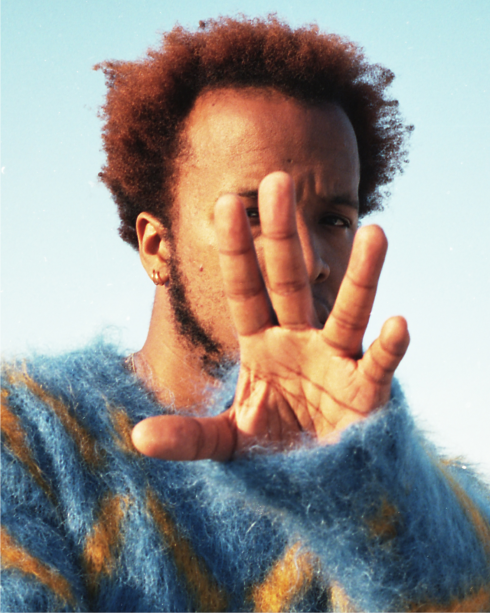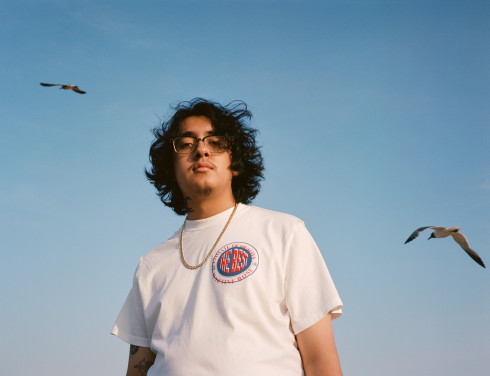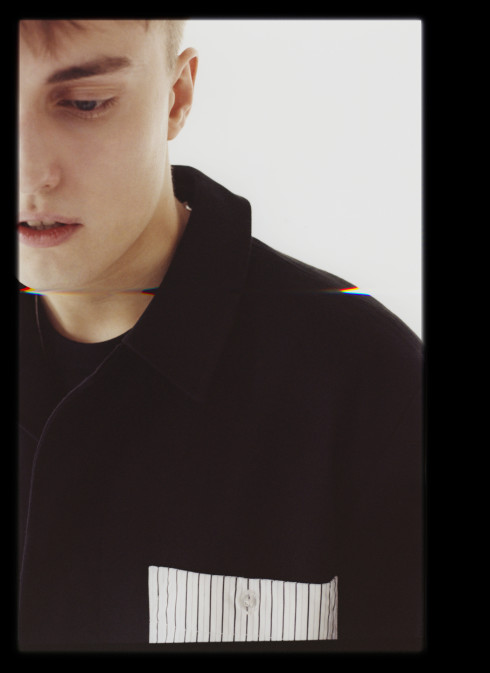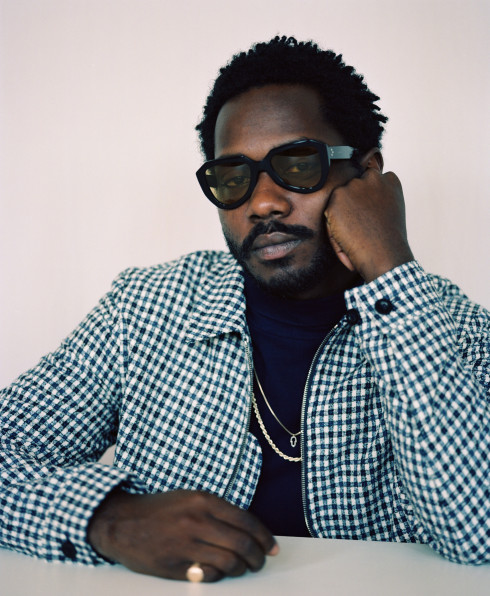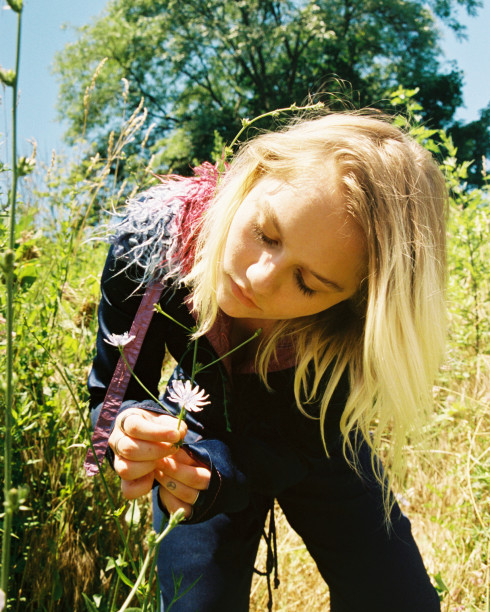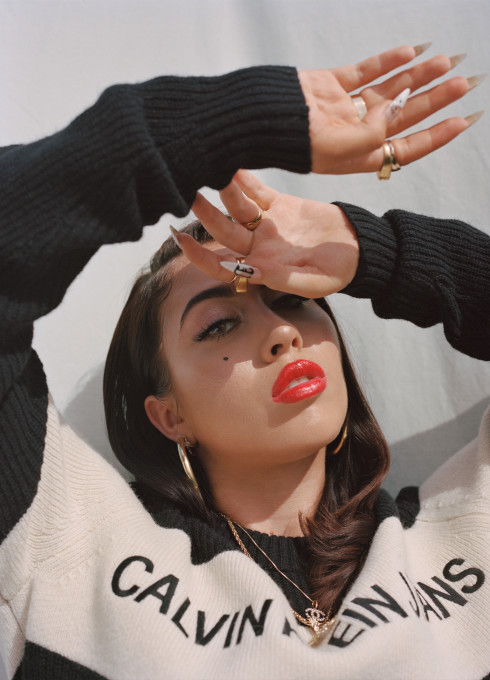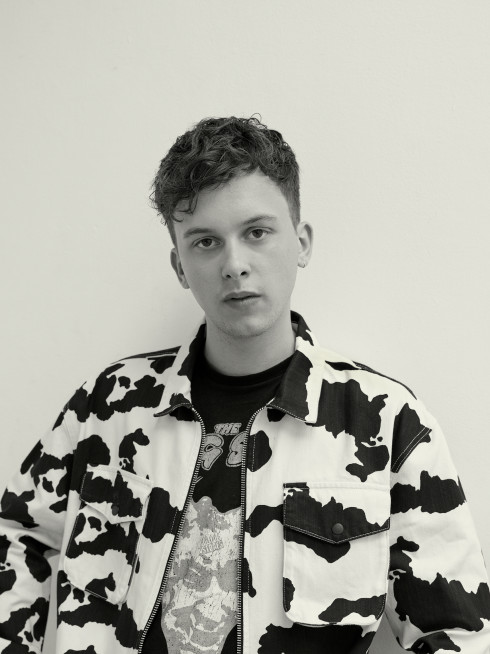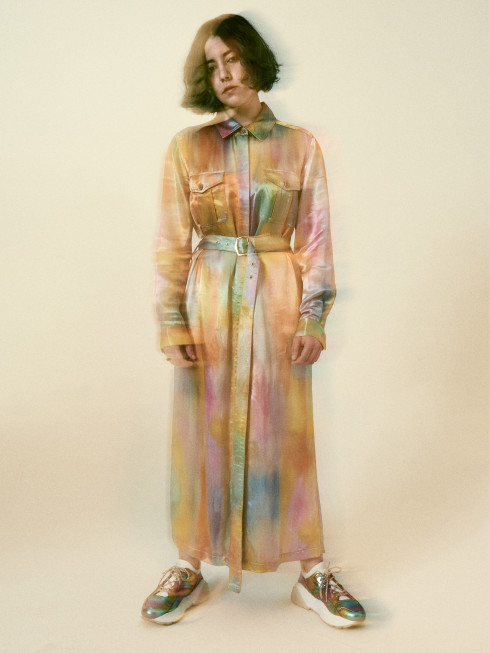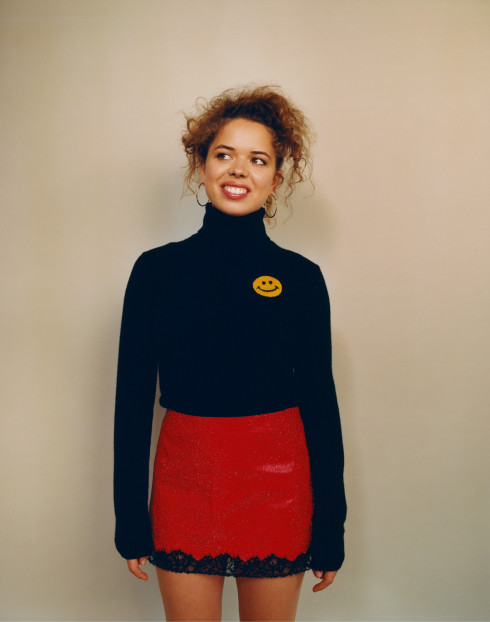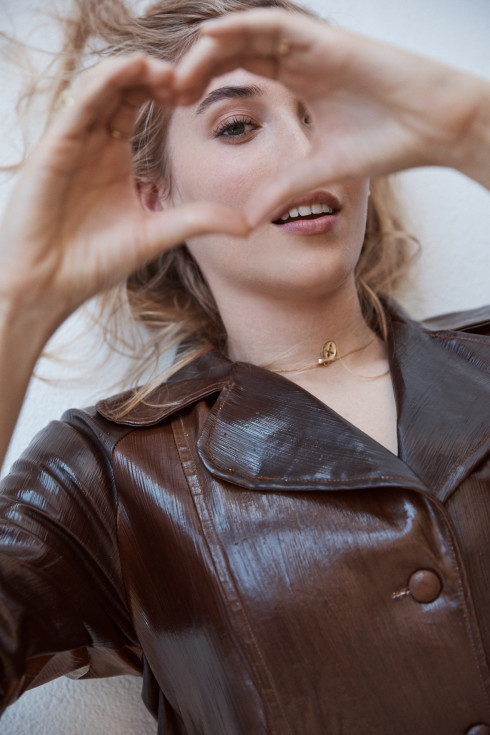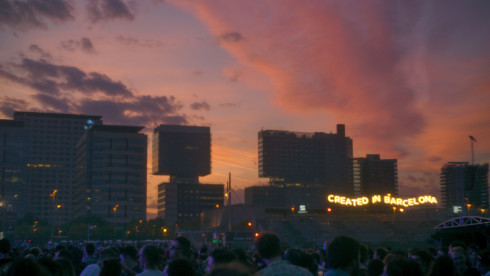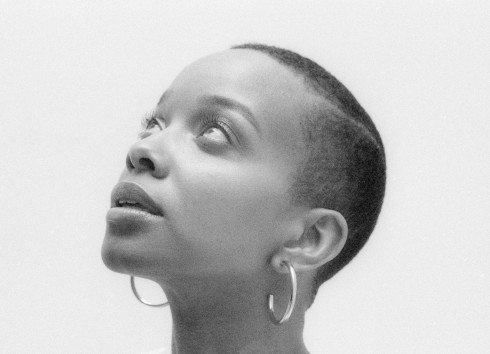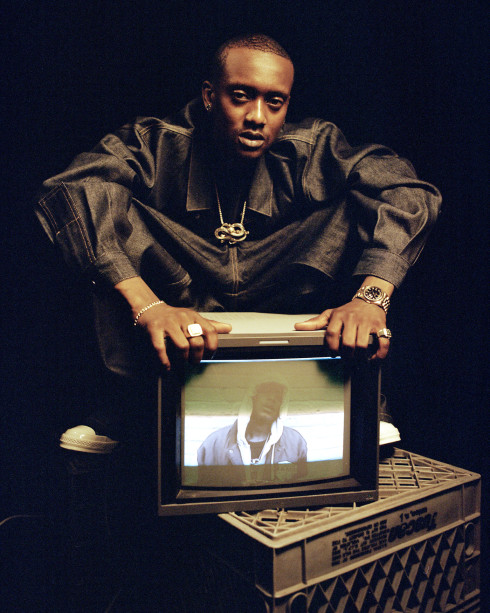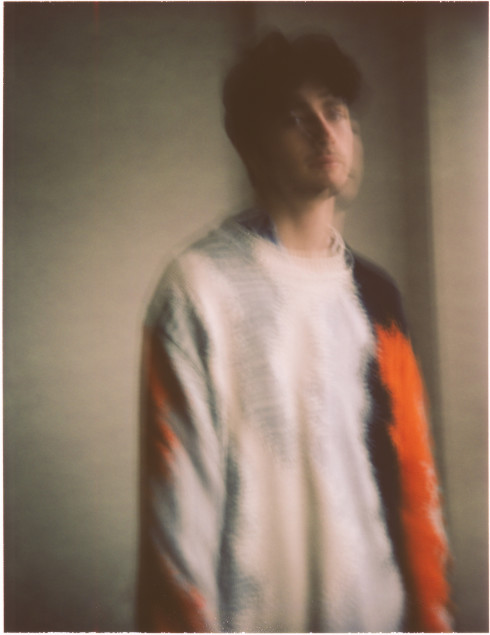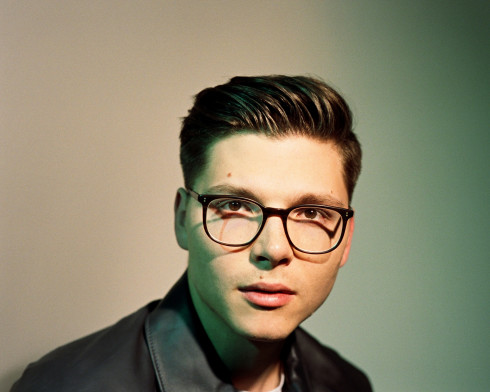- By
- Erica Snyder
- Photography by
- Mark Squires
Styling by Karolyn Pho. Hair by Rachel Lee Brady at Atelier Management using Bumble and bumble. Makeup by Samuel Paul at Forward Artists.
BIBI BOURELLY
You’ve heard her music before, even if you don’t know it. The German-American musician Badriia “Bibi” Bourelly has been a key player behind the scenes of many memorable, sing-along-in-the-club hits, such as Rihanna’s infamous “Bitch Better Have My Money,” as well as tracks for Usher and Selena Gomez. Accustomed to helping other artists share their stories through song, Bourelly—now on tour with Lil Uzi Vert to support her pair of Free the Real EP’s—also has her own tale to tell.
Bourelly grew up with Berlin with her twin brother and father, a talented guitar player. Her late mother was the head of the art department at Berlin’s House of World Cultures. Bourelly explains that growing up in a musical household with a touring parent was unstable at times—as a child, she moved from Germany to Washington, DC, and back again. During that time, school was not her top priority. “I was a little bit defiant because I kind of knew already what I wanted to do,” she rationalizes with a laugh. “I’ve always been a free spirit and a free thinker. I don’t like to be told what to do or confined or put in a box.”
After graduating from high school—with eighty-nine unexcused absences—Bourelly realized that Maryland was not the environment where she was going to fulfill her dreams. “I just enjoyed my summer with my friends and then when it got real, I was like, Ok, I can’t be here anymore, because I knew what I wanted to do,” she recalls. Bourelly, who was close with her producer Paperboy Fabe, trusted he would put her in good hands upon her arrival in Los Angeles. In retrospect, she realizes it could have gone terribly, yet at the time the move felt rational and right. “So I packed my shit and I moved to LA,” she recalls. “I started working with really big artists—Kanye, Rihanna, everybody. December, January, February, March, then one of my first singles was out on the radio. Then a month after that I did ‘Riot.’ And it’s just been a fucking whirlwind since.”
In the current state of the music industry, songwriting for other artists comes as a rite of passage. However, Bourelly does not want to be pigeonholed as just one entity. “I’m constantly like, ‘Don’t label me, don’t label me, don’t put any names on me,’ because it simplifies, it almost makes an entire being easy to understand or easy to comprehend,” she says. “It’s like a caricature. You know, ‘singer-songwriter,’ but I’m not just a singer-songwriter. I’m a storyteller, I’m an emotional girl. It’s so intricate, it’s so deep.”
Her first release, Free the Real, communicates the fire inside Bourelly. Its two parts, complete with different album art, break the typical EP structure and reflect her own personal and career trajectory. “Part one was written towards the very, very, very beginning of my career when no one knew me,” she explains. “I had just moved out to Los Angeles and no one had any idea who I was. Part two was after all those records were written, after I started to create a name for myself a little bit.”
On the album, Bourelly is unfiltered, raw, and expansive. The tracks do not adhere to specific genres, but often cross over and collide with one another. There are permeating blues undertones mixed with pop, R&B, and grunge. Produced by another artist, Free the Real could feel disjointed and unfocused, yet it is the musical manifestation of Bourelly’s fluid consciousness—and it works. She is able to boldly give free rein to creativity and create for the sake of creation. Her single “Ego” opens with the lyric “I’m nineteen years old with a big ego,” undeniably reflecting one side of Bourelly and warning those who look upon her through a single lens.
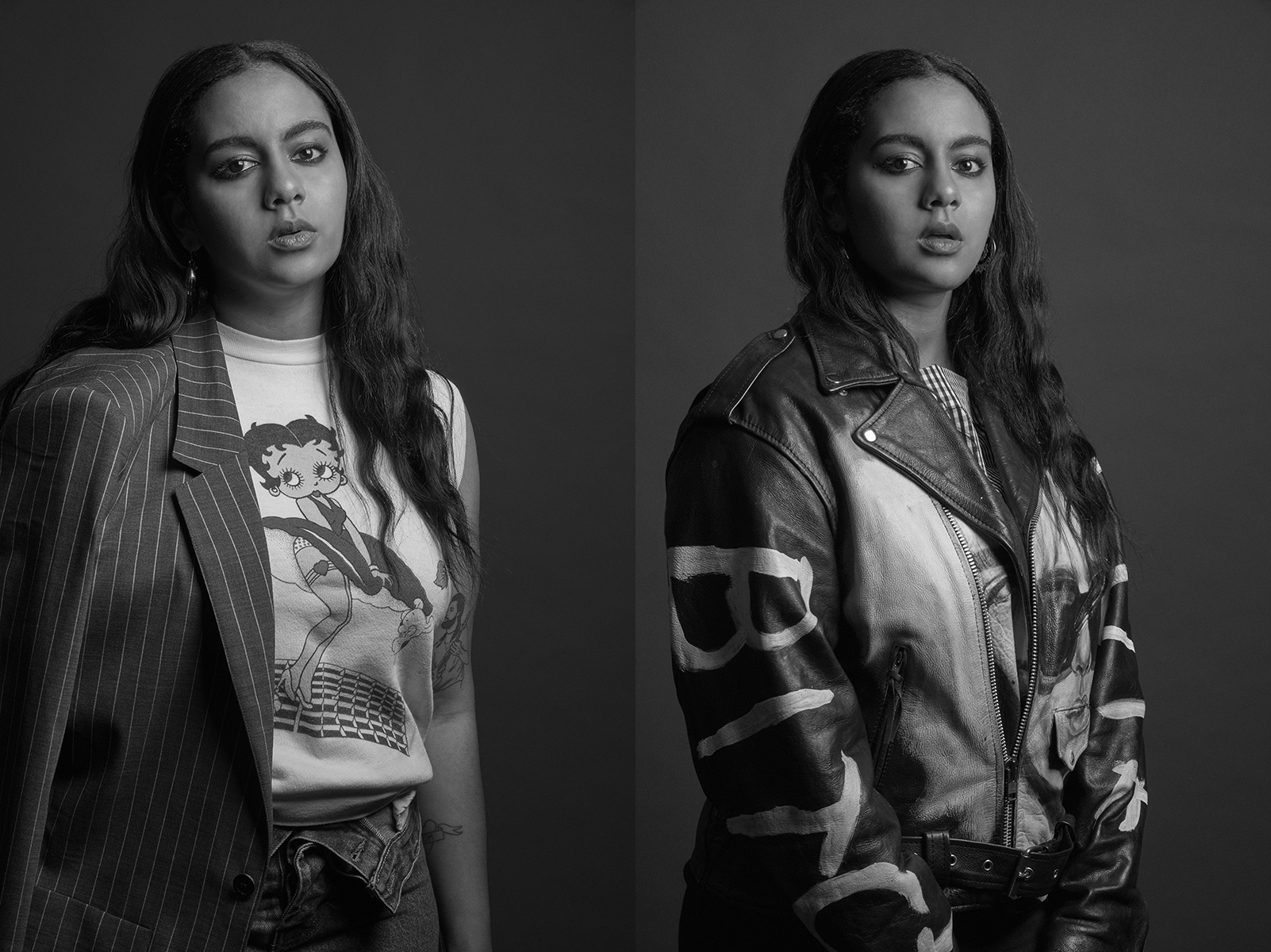
Though Bourelly at times projects a brazen persona in her music, in real life she is humble and human. “People like to call it fearlessness, but it’s not even fearlessness,” she explains. “It’s not the lack of fear, it’s doing things despite your fear. You’re still scared. It’s not like you’re inhuman or possess some phenomenal special quality that other people don’t possess. You just have the courage or the hope, the element of magic to go live freely and do as you please, and when you do that, when you really, truly do as you please—what I mean by that is not belligerently, you don’t have to be inconsiderate or rude to people—just exist the way you want to exist and don’t let anyone sway you, all these things start to happen for you. And your entire life changes.”
Even as she works on her début LP, Bourelly is not one to make solid future plans. She explains that carrying the weight of the industry’s expectations to produce music is a heavy burden on her creativity—at the moment, she is trying to “re-gear and reset my focus.” Aware of the importance of working with honesty, Bourelly only wants to make music she is feeling. “If the album comes out of that, the album comes out of it,” she says. “If an EP comes out of it, then an EP comes out of it. If something sick comes out of it, something sick comes out of it. If nothing comes out of it, nothing comes out of it. But I’m not forcing shit, you know?”
- By
- Erica Snyder
- Photography by
- Mark Squires
Styling by Karolyn Pho. Hair by Rachel Lee Brady at Atelier Management using Bumble and bumble. Makeup by Samuel Paul at Forward Artists.
